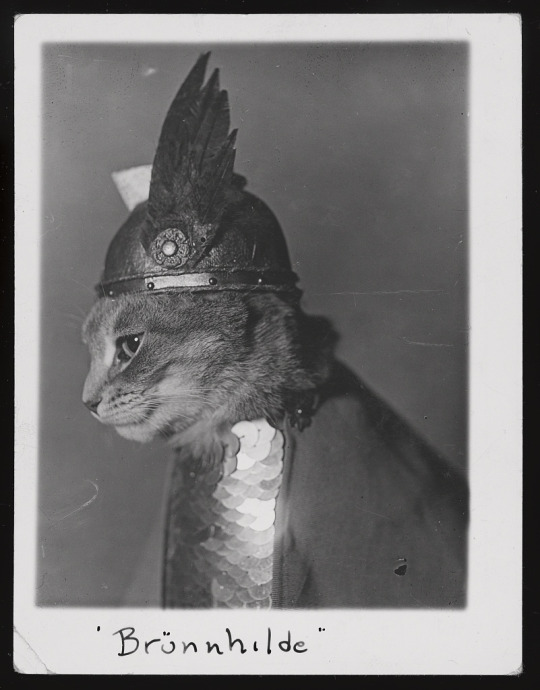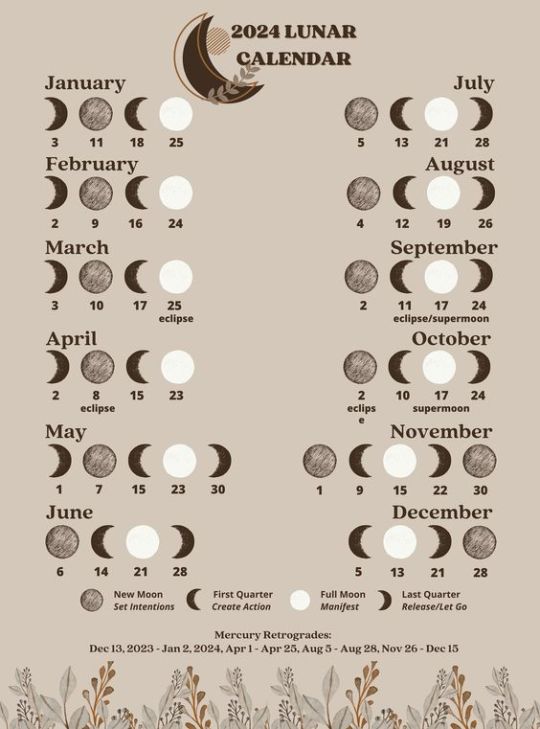Welcome ! I'm a newer Divination reader with some skills :) At the present I know for sure I can do good Career readings so you can send an ask and request one. Otherwise I'll be posting about my practice, sharing how I breakdown readings, and talk about books I've found helpful.
Don't wanna be here? Send us removal request.
Text



Guide to Drying Herbs
Drying herbs is a simple practice, and there are several methods to choose from depending on the type of herb and your desire use. Here's how I dry my herbs:
1. Drying on Newspaper


This method works well for larger leaves and herbs that don’t need to be hung.
Lay the herbs flat on a clean sheet of newspaper in a single layer.
Place the newspaper in a dry, well-ventilated area away from direct sunlight.
Turn the herbs occasionally to ensure even drying.
Once the herbs are dry and crisp to the touch, they’re ready for storage.
2. Hanging Herbs Upside Down

Perfect for longer herbs, like rosemary, lavender or thyme, that can be tied together.
Gather small bunches of herbs and secure them with a cord or string.
Wrap the herbs loosely in a breathable cloth, like cheesecloth or muslin. This helps them air freely while catching any small leaves or flowers that may shed during the drying process.
Hang the bunches upside down in a cool, dry place with good airflow. Avoid direct sunlight, as it can degrade the color and potency.
Once the herbs are completely dry (they should crumble easily), remove the leaves or store them as they are.
I do this with fresh lavender that I put in my closet as shown in the picture.
3. Pressing Herbs


This method is ideal for preserving delicate leaves or flowers for decorative purposes or rituals.
Place the herbs between sheets of paper (such as parchment or regular printer paper).
Insert the paper into a thick book, ensuring the herbs are spread flat and evenly.
Place additional books or a weight on top to press them.
Leave them for 1–2 weeks, checking occasionally for dryness.
4. Drying Small Petals


For small, delicate petals or flowers, a rule bag works wonders.
Place the petals or flowers in a breathable rule bag (such as a mesh or cotton drawstring bag).
Hang the bag in a dry, ventilated area.
Shake the bag gently every few days to prevent clumping and to ensure even drying.
General Tips for Best Results
Use Breathable Cloths: Wrapping your herbs or laying them on a breathable cloth allows air to circulate freely, preventing mold while catching any small leaves or flowers that shed during the drying process.
Timing: Dry herbs as soon as possible after harvesting to retain their potency and fragrance.
Environment: Choose a dry, cool, and ventilated area to prevent mold or mildew.
Labeling: If drying multiple herbs, label them to avoid confusion.
Storage: Once dried, store your herbs in airtight containers away from sunlight and moisture.
Using Dried Herbs
Always check if the plant is safe for use before collecting it. Do not make tea or touch anything with unknown properties. Always clean your plants before drying.
Once your herbs are dried, you can use them for teas, rituals, incense, or other magical and practical purposes. Always remember to respect and honor the plants you've harvested by using them mindfully.
2K notes
·
View notes
Text


Sailor Moon reminds you to do your daily click for Palestine
27 notes
·
View notes
Text
And for me I was thinking with Tarot on the mind all “Yes, Nine, End and Reflection, Dreams and Connection, makes sense.”
and what if I told you nine was less afraid of love than ten. what then.
174K notes
·
View notes
Text

Death

The Nine of Cups

Justice
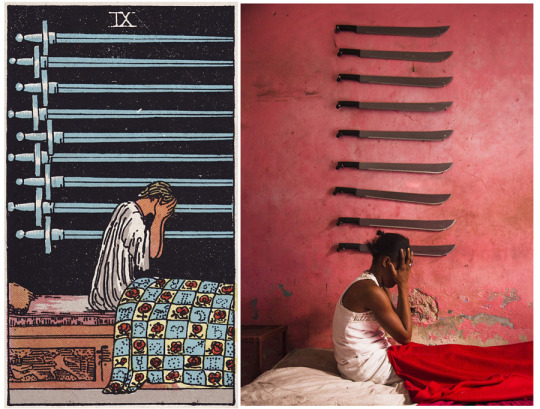
The Nine of Swords
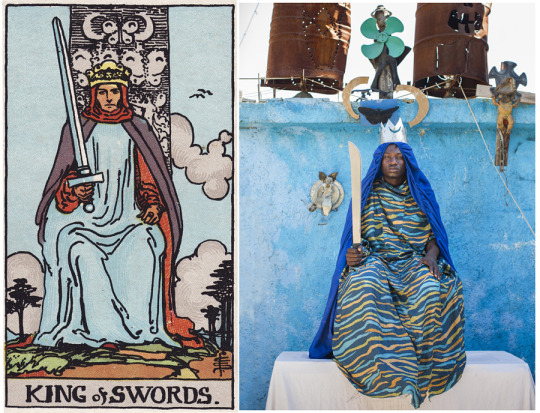
The King of Swords

The Hanged Man

The Hermit

The Six of Swords
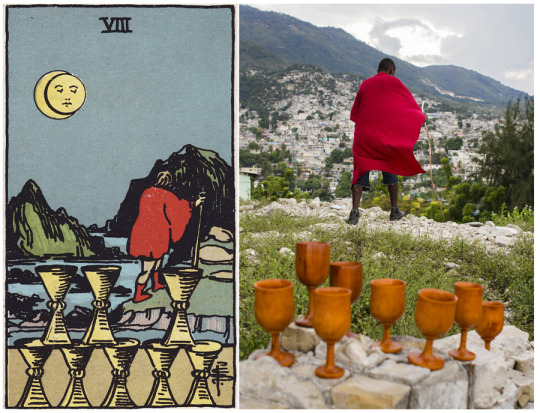
The Eight of Cups

The Five of Cups

The Sun
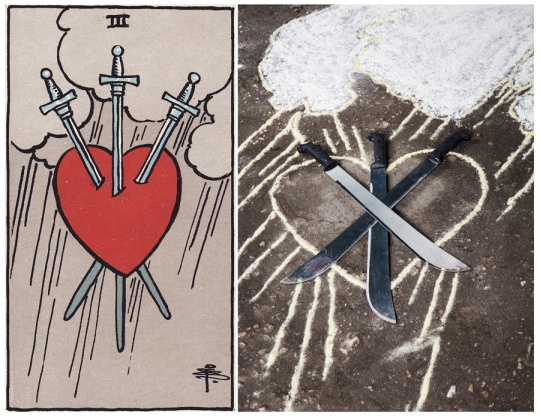
The Three of Swords
‘The Ghetto Tarot’: Haitian artists transform classic tarot deck into stunning real life scenes:
Welcome to the Ghetto Tarot, a project from award-winning documentary photographer Alice Smeets and a group of Haitian artists known as Atis Rezistans. The idea was to take the classic Rider-Waite tarot deck of 78 cards and create a photographic version of each card using settings and objects in the vibrant ghetto of Haiti.
As Smeets says, “The spirit of the Ghetto Tarot project is the inspiration to turn negative into positive while playing. The group of artists ‘Atiz Rezistans’ use trash to create art with their own visions that are a reflection of the beauty they see hidden within the waste. They are claiming the word ‘Ghetto,’ thus freeing themselves of its depreciating undertone and turning it into something beautiful.”
56K notes
·
View notes
Text
The fire that lit inside me at this is incomprehensible. What I wouldn’t give for a full deck of this….
Hail the Nightmare.
Suddenly realised that the Nine of Swords Tarot card goes very well with Bloodborne👀 prints ✦ patreon (full speedpaint is available there)
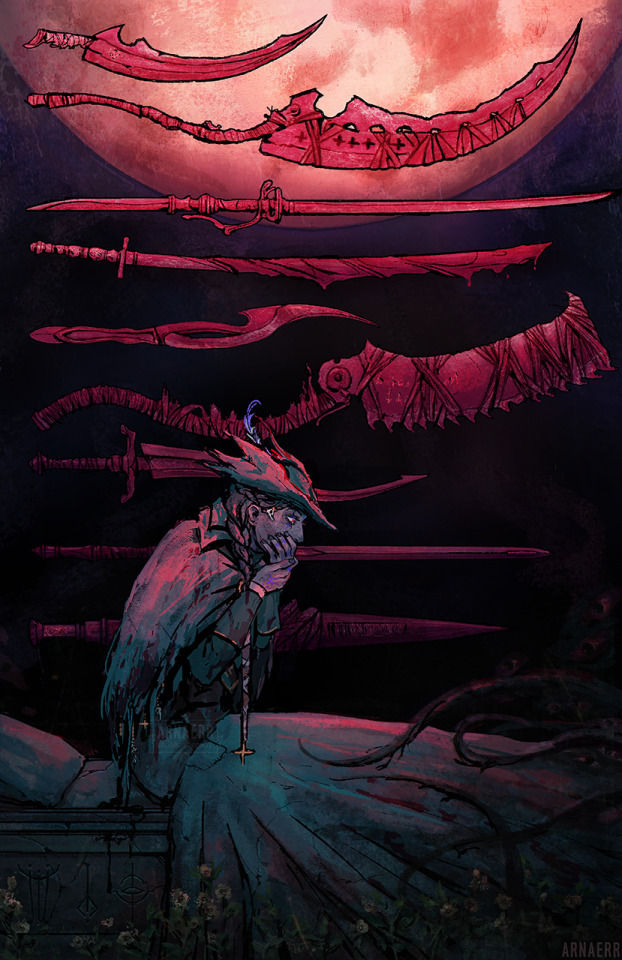
some close ups:

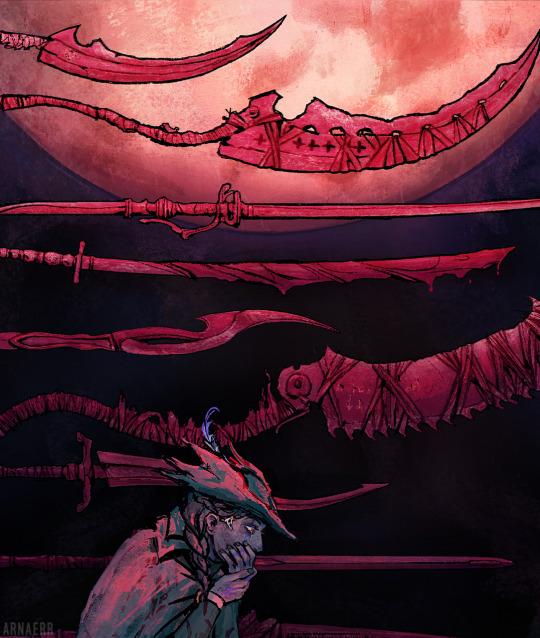
2K notes
·
View notes
Text
Taking Notes for Witchcraft
You'll see the advice of "write everything down" everywhere, and for good reason. It's a fundamental skill when studying anything, in my opinion. You can be a great reader and know all the right ways to spot a bad source, but none of that matters if you aren't keeping notes. A student is only as good as their note-taking skills, and all witches are students.
But how do you take notes?
Well, first of all, take note of this: I'm not talking about a grimoire. This isn't about writing proven spells in a pretty notebook. This is about writing down everything in a non-judgmental, kind of messy, comprehensive log. It should have a standard layout or template to make it easier to use and look back on, but otherwise, it's a working document for your eyes only.
There are countless ways to keep notes on anything. If the school system failed you (as it did many of us), chances are, you weren't ever taught how to take notes. You were just told to "write that down" and never looked at it again. You're not alone! You, too, can learn how to take not just notes but good notes.
Fundamentals of Note-Taking
The important thing to remember here is that notes are for you. There is no test to pass, no professor to impress, no essay to write. These notes are meant to help you in your magical and/or spiritual practice. But what's the purpose of taking notes, if there's no one and nothing forcing you to take them? In my mind, there are a few:
Absorbing new information by associating a physical movement with the topic (as in, remembering writing something down and using that to recall the information)
Being able to go back and reread information you've already gone over, creating a reference document for future use
Making note of thoughts, opinions, and ideas in the moment so you remember them later
With these basic purposes in mind, you might think to yourself, "Oh, that's easy! Just write everything down. Easy peasy." But to make notes not only effective in the moment for absorption and having the information in one place, they also have to be organized. Writing things down willy-nilly is fine right up until the moment you're spending 20 minutes looking for one specific note buried in a pile of loose, unlabeled papers.
So here are my (very opinion-driven) guidelines for taking notes on anything:
Notes must be kept in a dedicated, bound notebook or dedicated digital file system. Not a binder, not in loose-leaf pages, not on scraps of paper. In a notebook. Spiral notebooks are fine, but I prefer something I can't rip pages out of. I have both a digital system and a notebook system; the notebook is for raw notes and unfiltered thoughts, whereas the digital system is more polished (my actual grimoire).
Notes must be kept in date order. Chronologically! Not by subject. No jumping around the notebook, either. It doesn't matter if one page has a list of recipes to test and the next is detailing an odd dream. If they happen on the same day, they exist together.
All pages must follow a template. I have several templates for various subjects -- one for test recipes, one for completed recipes, one for spells, one for research topics... Some are more rigid than others (recipes in particular). You can use any template or method that you want, so long as it works for you. What matters is that they're all the same every time.
The template must include the date, a title, and the purpose or a summary of what the notes are about. This makes it easier to remember when I did something, what it was, what the contents of the notes are, and why I was taking the notes later on.
Number your pages. A pre-numbered notebook is ideal, but you can always add the numbers yourself.
Notes have to be legible. It just has to be legible to you. If your handwriting sucks (like mine), that's fine so long as you can read it later. But this also means making an effort to use language you'll understand. Don't use fancy script you can't read or big words you don't actually understand.
Write in pen! Controversial, maybe! But you should take notes in pen, never pencil. For one, pen won't smudge and fade like pencil will. For another, writing in pen prevents you from erasing your thoughts in the moment. You shouldn't be afraid of making mistakes or crossing things out. Plus, erasing destroys paper. Just don't do it.
Write in two or even three colors. The third reason to use pen! When I write notes, I usually write my template out in black. Then, I'll fill in the basic information in the same black pen. The "actual notes" are taken using a colored pen (blue, often). As I take notes, I usually have thoughts and ideas outside of the information I'm trying to take down. To make these more clear and easier to find later on, I write them down in a third color (red or another fun color).
Let yourself be a little disorganized and "ridiculous." Look. I know I'm saying to use templates and write neatly. But these notes are for your eyes only. You can write things down that you don't think will be actually useful later. Jot down that this detail made you think of that person. Scribble doodles in the margins. Whatever. If it's not going to impede your note-taking, it doesn't matter. But also, if you start reading a book today and don't come back to it until next week, don't pick up the notes on the prior page. Start a new page. The title should reflect that it's a continuation, but don't skip pages to make room for more notes. Fill in every page as you get to them. This is why we number our pages -- note down where the last set of notes are and then keep moving.
An Example - Book Notes
Let's say I'm reading a book and want to take notes from it. The first thing I want to consider is my goal in taking these notes and what I'm hoping to get from the book. My notes will look very different if I'm trying to review a book's quality versus learning a particular type of magic. For the purposes of this example, we'll say I'm taking general notes to glean as much information as I can from the book.
And let's say I'm using... *casts about looking for the nearest book*... The Bountiful Container, by Rose Marie Nichols McGee and Maggie Stuckey. A book I genuinely do recommend for anyone looking to learn how to keep an edible container garden, by the way.
My ideal template for a book includes:
The date in the upper left-hand corner
The page number in the lower outer corner (for left pages, bottom left; for right pages, bottom right)
The title of the book as the title of the page, followed by the author
The topic of the book
What the book contains (spells, instructions, philosophy, guides, lists, etc.)
My goal in reading it and taking these notes
A heading to delineate where the actual notes begin
Dividing parts or chapters in my chosen note-taking pen color
Here's an example of what that might look like:
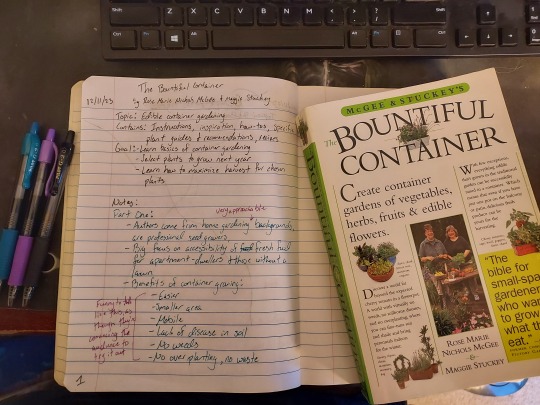
Note how I'm using bullet points to keep my thoughts organized and separated. You can also see the purple writing that denotes my less organized, in the moment thoughts and feelings on what's being said in the book. Here, the black pen is the template, the teal is the facts presented by the book, and purple is my personal commentary.
You don't have to divide your commentary and factual notes, by the way. I do it because I want to easily delineate between what's actually being said by the authors and what I'm thinking in the moment about what's being said. Sometimes, I'll write them as I have in the above example, in the margins or next to the factual stuff. Other times, I'll write them in line as a dedicated bullet point. It all depends on when I have the thought.
Another Example - Spell Notes
"But what about spells?" I hear you hypothetically asking. I'm glad you've hypothetically asked, dear reader! A very similar approach can be applied to writing notes on spells.
For the purposes of this example, I'll actually show off an updated version of the notes for my Pickled Pickle Hex. Note that this isn't my actual notebook or grimoire, since those are for my eyes only.
For spells, my ideal layout includes:
The name of the spell as the title
The date in the upper left corner
The page number as described previously
The source of the spell
Type of spell (hex, protection, edible, jar, candle)
Purpose of the spell
Ideal timing, if applicable
Ingredients
Instructions
Space for notes before, during, and after the spell (during/after notes may be recorded separately)
And here's the visual example:

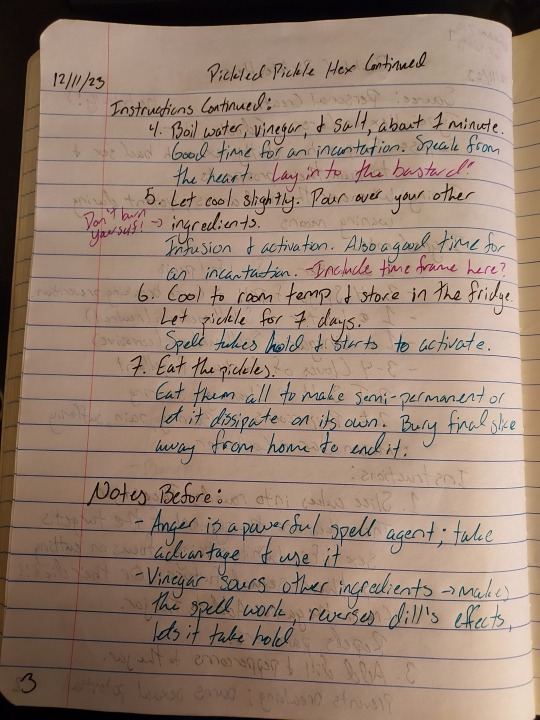
Note again how the template and basic information is all in black. This color is all business, detailing the actual, physical steps taken for the spell. The teal pen describes the magical parts -- ingredient correspondences, magical acts, incantation locations, etc. In the actual version, I include the incantation itself here. Then, the purple pen is my thoughts while recording it. It's mostly me talking to myself, but note under number 5 in the second image where I ask, "Include time frame here?" It's a note to self to consider where to add an expiration or expected end date during the casting process.
Again, you can include whatever you want. My original notes have doodles and copious notes in the margins... plus ingredients I needed to pick up for the spell. You can include whatever notes you need to. If it's relevant in the moment, write it down.
Recording Spell Results
A big part of note-taking for me is writing down how things work and how it all went. After all, why would I want to cast a spell again if I didn't enjoy it and it didn't work?
It's important to keep notes during your casting. I would suggest tracking the following:
Thoughts and feelings you have (nervous, tired, happy, angry, "I'm hungry," "I should've brought water with me," etc.)
Messages you receive from spirits or other entities
Odd things you notice (wax dripping strangely, shapes in the incense smoke, sounds nearby, increased pet activity, tarot cards jumping)
Alterations to prescribed steps, ingredient substitutions, added or removed steps or actions
Questions you have during the casting and answers if you look them up immediately
Concerns that come up regarding efficiency, energy levels, whether you're "doing it right," missing ingredients, and so forth
How the final result turns out (how it looks, how you feel about it, etc.)
What your next steps are (hiding it, burying it, setting it on your altar, eating it, etc.)
During this stage, particularly for that last bullet point, decide when you'll come back to this spell to check how it went. Sometimes, it isn't possible to test your results (hexes on someone you don't see consistently, for example). Even so, you should still return to the spell to record how you feel, what you think with hindsight on your side, and so forth. If you can tell how the spell worked, write down what happened and why you believe it's connected to the magical working.
If you like, you can make additional notes on the spell and steps themselves. What I do is I put a note under the post-casting section that says, "Additional notes written [date] in this pen color." And, true to form, it'll be a different pen color to everything else I've written with so far.
Again, remember that these notes aren't final. They're experiments and study notes, not grimoire pages. These notes are what your grimoire will be based on. Once you feel confident with a spell, write it into your official grimoire using your layout and medium of choice. In my case, this means typing up the final, expanded version of my notes and spells.
Conclusion
Look, in the end, it doesn't matter how you're writing stuff down. All that matters is that you're writing it down. Keeping it organized makes it easier to use later. Do what works for you.
Here are a few suggestions for note-taking methods and applications that have fed into my philosophies:
Bullet journaling - This ended up not really being for me, but a lot of the ideals are really appealing. This is where the templates idea came from.
Lab notebooks - By far the biggest influence. I highly suggest all magical practitioners give the lab notebook method a try, especially for testing spells and recording results.
Writing prompts - No, really. Using writing and spell prompts to build out and test my note templates was critical when I was trying to figure out how best to set things up. It's a low-effort way to bang out a bunch of ideas and refine layouts.
Spell books - Obviously. Take a look at how authors lay out their spells. It's organized, easy to parse, and includes details about the working. That's ideally what your notes should mimic.
Obsidian - This is an application for taking notes. It completely replaced my massive, disorganized folder of Word documents. Link between pages, tag documents for easy sorting, embed content from reference websites, draw brain maps, organize folders, use add-ons to create templates... Obsidian has literally been life changing. I use it for everything, including my grimoire. You have to pay for it, but it's very worth it. A second brain, indeed.
Try different layouts, formats, methods, mediums, everything. Hell, write notes on what works and what doesn't for your note-taking. You gotta start somewhere.
If you like my work, consider throwing a tip in my tip jar! Your support helps me keep making posts like this one. Plus, supporters got access to the full version of this post a full week early! That could be you for as low as $1.
1K notes
·
View notes
Text
Witchy Self-Care
*pulls out draft from over a year ago* ENJOY
Hi! this is a list of witchy self-care things you can do. Most of these are pretty basic on account that i wrote this ages ago but they definitely still work. Anyways, I hope these help :)
Do the dishes and dedicate it to your house spirit (if you have one) or a deity (if you're religious)
sweep/mop your floor in the shape of sigils
add rosemary (or rosemary water/essential oils) to the water you mop with to set an intention of cleansing
taking ritual a bath/shower
cleansing your energy. it's so basic but I forget more than i'd like to admit
dedicating time to yourself. it's just as important as dedicating time to your deities/other spirits
light shadow work or going to therapy. bettering your mental health also betters your spiritual.
go outside and ground yourself
take a nap (less witchy, more, I love naps. rest is important)
work out/stretch and dedicate it to an entity
do some gratitude
take 5 minutes to just sit and turn off your devices. you can use this time for anything, just take a second to get off screens and connect with the world around you
meditate. if you can't sit still long enough to meditate, just focus on taking 3 deep breathes
when you wash your face, draw sigils on your face with the cleanser and moisturiser
^do the same as above but with your body wash and when you wash your hair
say some affirmations/manifestations while brushing your teeth
just check in with yourself and see how you're feeling spiritually, psychically and emotionally. sometimes we don't actually know how we're feeling until we sit down and actually ask ourselves.
If anyone has any more to add please comment. I'll add them to the list (with credit of course)
6K notes
·
View notes
Text
runes and their divinitory meanings
ᚠ fehu
BRIGHT STAVE: wealth, transaction, gold, prosperity, the fiery spark that can initiate productivity. creativity, energy, and generosity MURK STAVE: greed, duplicity, slavery, materialism and dishonesty, wolves lurking in the forest
ᚢ uruz
BRIGHT STAVE: primal strength and persistence, energy, tenacity, the survival instinct, raw energy, desire MURK STAVE: stubbornness, brutality, waning strength, the fragile ego that acts out
ᚦ thurisaz
BRIGHT STAVE: willingness and drive to protect oneself, manifestation of primal will, primordial energy MURK STAVE: violence, mental disturbance, sexual predation
ᚨ ansuz
BRIGHT STAVE: inspiration, oration, "divine breath," heed the advice of the divine MURK STAVE: being manipulated against the divine, lies
ᚱ raidho
BRIGHT STAVE: movement, propulsion, journey, discipline is needed to enact a change MURK STAVE: forced change, chaos, swimming upstream
ᚲ kenaz
BRIGHT STAVE: spark of creativity, bright ideas, fire power and energy, light in the darkness MURK STAVE: pain, exposure and weakness
ᚷ gebo
BRIGHT STAVE: generosity will be returned, sacrifices made out of love and loyalty MURK STAVE: stinginess, evil repaid with suffering, charity used to polish self image and boost ego
ᚹ wunjo
BRIGHT STAVE: joy, bliss, happiness, a sense of belonging with loved ones, support and achievement MURK STAVE: depression, alienation, rage
ᚺ hagalaz
BRIGHT STAVE: storms and forces beyond our control, our own darkness becomes potential for creation MURK STAVE: that which festers and broods under the surface, change for the worse
ᚾ nauthiz
BRIGHT STAVE: strife and strain, desire, what doesn't kill you makes you stronger MURK STAVE: poverty and health concerns
ᛁ isa
BRIGHT STAVE: take a much needed break, reinforces the runes it's close to MURK STAVE: blockage, illness, self-loathing, laziness, lethargy
ᛃ jera
BRIGHT STAVE: the harvest will be fruitful, your efforts will pay off, this too shall pass MURK STAVE: efforts put in the wrong place, a poor harvest
ᛇ eihwaz
BRIGHT STAVE: strength, reliability, mysticism, clairvoyance, communication with ancestors MURK STAVE: associated with death, caution is advised
ᛈ perthro
BRIGHT STAVE: good luck, good karma, birth/pregnancy, major life altering decisions MURK STAVE: bad karma, addictions, pessimism, repercussions for your actions
ᛉ algiz
BRIGHT STAVE: represents a shield (spiritual/ancestral/physical), things we hold sacred MURK STAVE: something is in danger, take stock and look for unseen dangers
ᛊ sowilo
BRIGHT STAVE: health, success, life force, radiance, facilitates positive change MURK STAVE: arrogance, misuse of power, distorted mindset, approach with balance
ᛏ tiwaz
BRIGHT STAVE: stay on track and stay disciplined, order, righteousness, the god Tyr MURK STAVE: over-sacrifice, tunnel vision, loss and imbalance, rage and frustration
ᛒ berkano
BRIGHT STAVE: light, renewal after chaos, fertility, birth, love, "feminine" magic, children MURK STAVE: problems conceiving, negativity/confusion with love, unwillingness to change
ᛖ ehwaz
BRIGHT STAVE: travel, fruitful partnerships, mutual respect, loyalty, sex MURK STAVE: jealousy, unequal exchange, strife in partnerships, take care of what's important to you
ᛗ mannaz
BRIGHT STAVE: mind and memory, human nature or connection with others, balance between masculine and feminine MURK STAVE: loneliness, difficulties with intimacy, possibly issues concerning gender (as in personal identity or conflicts with others)
ᛚ laguz
BRIGHT STAVE: success, the primordial waters, creation and fertility, psychic visions and dreams MURK STAVE: subtle manipulation, hypnosis, paranoia, poor decision making, avoiding responsibilities
ᛝ ingwaz
BRIGHT STAVE: the god Freyr, gathering of loved ones, home and hearth, peace, prosperity, (male) fertility MURK STAVE: someone unwilling to leave, responsibilities being avoided
ᛞ dagaz
BRIGHT STAVE: dawn, illumination, hope, unifying unlike aspects, joy for life is balanced with responsibilites MURK STAVE: warns that the truth can be painful
ᛟ othala
BRIGHT STAVE: everything inherited, oaths, revisiting roots, family, ancestors MURK STAVE: elitism, ethnocentrism, discrimination
369 notes
·
View notes
Text

Top of the reading = Theme = Cycles
The 5 cards in a circle around the bottom of the deck = The cycle itself
The Moon - You are blinded by an idea (of a person)
The Lovers - You open your heart to take a chance
6 of Pentacles - You are generous with your time and money
Ace of Wands - You hope with all your heart this person is who you manifested, that does all these different things to show you care/affection/ attention
5 of Pentacle - You are disappointed and wilt in the love you previously had
Bottom of the deck = 10 of Cups = An emotionally fulfilling relationship
Suuuper interesting and relevant to me for sure, im gonna shuffle the deck and see what points in the cycle I can break this, or replace what is there
In terms of breakage:
The Moon ^Son of pentacles (Knight) v Daughter of Cups (Page) = be tentative, observe, and especially see what they want to being to the table by WATCHING for it, not imagining it
The Lovers = No Breakage, only choice continues on here
6 of Pentacles vs The High Priestess = “If you think you’re getting mistreated, you are. Do not second guess it because if you are hurt, if you are hurting, you mist address it.”
Ace of Wands vs 8 of Cups = Understand truly what you have in front of you, and walk away. How many times have they broken your cup? No. More.
5 of Pentacles vs Ace of Pentacles =only give a person a shot if they really resonate with you

Mother of Cups + 8 of Swords = Acknowledge this trap of a cycle your in, ask yourself the hard question after reading all of this
The follow up from this point is private to me but, what do you think? :)
0 notes
Text
I hope this message empowers whoever needs it!
*This is a collective reading, so it will be more general*
0 notes
Text

…..if you know, you know.
If not, let me introduce you to a really great, polite, sick burn I just got from these cards in hopes to light a torch for me and my future.
This 3-Card layout is like this:
1) What’s Going On
2) Your Emotional Situation
3) Challenges to Overcome
0 notes
Text
Today instead of getting existential, I asked my tarot deck for a joke like LightWands recommended and y’all. Its a good one.
“What did the cemetery man say at family dinner?”

“You can bury your friends but you can’t bury your memories!”
#divination#tarot reading#tarot#tarotblr#tarot witch#spirituality#ask your tarot deck a joke#LightWands prompt
2 notes
·
View notes
Text
Tarot card reading topics
Tarot card readings can cover a wide range of topics and areas of life.
Here are some common topics that people seek tarot card readings for:
Love & Relationships: This includes insights and guidance on romantic relationships, potential partners, compatibility, relationship dynamics, and ways to improve or navigate your love life.
Career & Finances: Tarot readings can provide guidance on career choices, job opportunities, financial stability, investments, and strategies for achieving financial goals.
Personal Growth & Self-Discovery: These readings focus on personal development, self-exploration, inner healing, overcoming challenges, finding purpose, and gaining a deeper understanding of oneself.
Life Path & Purpose: Tarot can offer insights into your life's direction, purpose, and the lessons you are meant to learn. It helps you gain clarity and make decisions aligned with your higher self.
Health & Well-being: Tarot can provide guidance and insight into physical and mental health, wellness practices, self-care routines, and steps to improve overall well-being.
Family & Relationships: This includes insights into family dynamics, improving relationships with family members, resolving conflicts, and building healthier connections.
Spiritual Guidance: Tarot readings can offer spiritual insights, guidance on spiritual growth, connecting with higher consciousness, exploring intuition, and deepening your spiritual practice.
Decision-Making: Tarot can help with decision-making processes by offering different perspectives, exploring potential outcomes, and highlighting key factors to consider when making choices.
Life Transitions & Changes: Tarot can provide support and guidance during major life transitions, such as moving, starting a new chapter, dealing with loss, or adjusting to significant changes.
Personal Relationships & Friendships: Tarot readings can provide insights into personal relationships, friendships, and social connections, helping you navigate challenges, improve communication, and build stronger bonds.
Remember that tarot readings are subjective and should be used as tools for reflection and guidance.
The specific topics covered in a reading can be tailored to your individual needs and interests.
140 notes
·
View notes



